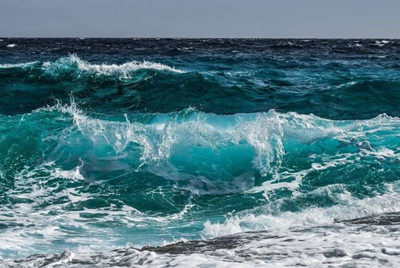
Solar-powered technology, such as photovoltaics (PVs), could address some of the environmental challenges of our times, enabling the sustainable production of electrical energy in many geographical areas, including arid or desert regions. Many arid regions are located near an ocean or sea, yet they are typically affected by a scarcity of clean and fresh water.
A scarcity of highly purified water, which is required to power most existing electrolyzers, makes storing intermittent solar electricity particularly problematic. Electrolyzers are technological tools that can separate water, typically purified water, into hydrogen and oxygen, through the use of an anode and a cathode.
To enable the use of solar and hydrogen-based technology in regions with a lack of available clean fresh water, researchers have been trying to develop electolyzers that can split saline or impure water directly, without the need prior purification. Hydrogen produced using these electrolyzers could then also be shipped around the world, facilitating the shift toward a hydrogen-based energy infrastructure.
In a paper published in Nature Energy, researchers at the National University of Ireland Galway, the University of Liverpool and Technical University Berlin have conducted a review of recent advancements in materials and catalysts that could enable electrolysis with low-grade or saline water. Their study also outlines some of the key challenges associated with designing these electrolyzers, highlighting approaches that could help to overcome these issues.
"We are now seeing the first potential opportunities regarding the value of saline water electrolysis, with hydrogen from Australia being shipped to Japan," Peter Strasser, one of the researchers who carried out the study, told TechXplore. "Australian hydrogen can be generated using solar electricity from desert areas, where fresh water is rare and precious. Another case for electrolysis of saline waters arises from offshore wind parks all over Europe, where one can generate on site hydrogen which can be piped on shore or used in refueling stations offshore for water vehicles of all kinds."
In their paper, Strasser and his colleagues examined all scientific studies that succeeded in electrolyzing saline water, focusing on those employing catalyst materials. Their review specifically examined physical principles behind the functioning of electrolyzers proposed in the past, which often differed and yet brought about the same end result, as well as device stability and energy efficiency.
The review conducted by Strasser and his colleagues also highlights some of the challenges that need to be overcome before the electrolysis of impure and saline water becomes viable. This includes the design and use of suitable membranes, as most existing membrane technologies may be unable to block impurities.
"If we think this through at the global scale, using fresh water to generate hydrogen is no longer a feasible option, at least in arid areas where most of the cheap solar electricity is produced," Strasser said. "We showed that the research direction of designing new selective catalysts (but also other materials components like membranes) for high performance seawater electrolyzers is a very important one, and it deserves more attention."
Overall, Strasser and his colleagues suggest that researchers trying to develop electrolyzers that can split saline or impure water should try to identify new catalyst materials that are applicable to the wide variety of seawater compositions present on Earth. Their paper provides valuable insight that could inform the study and development of innovative electrolyzer technologies.
The researchers believe that fresh water is the most valuable resource on Earth, and its value is only likely to increase in the future due to droughts, floods and other detrimental effects of climate change. In years to come, water could be of vital importance both for the survival of all life on Earth and for the sustainable production of electrical energy. Electrolyzers that can split saline or impure water into oxygen and hydrogen without requiring prior purification processes could thus play a key role in facilitating the shift toward a new, more sustainable, energy infrastructure.
"We are currently working on developing seawater electrolyzers together with several international companies specialized in this field," Strasser said. "The general idea is to help these companies to become leaders in this technology."

